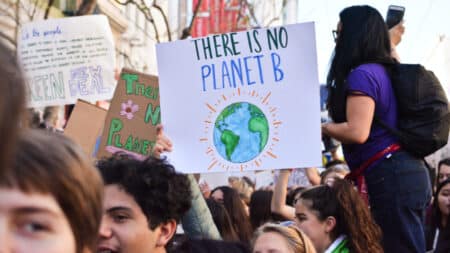Since the early modern period, the official papal position on matters of primary importance are laid down in the authoritative form of encyclical letters. The latest one, “Fratelli tutti” – All Brothers – on fraternity and social friendship, was signed by pope Francis on 3 October 2020 at the tomb of Saint Francis in Assis, Italy.
The core message
The pontiff’s declaration is grounded in a world of perceived expanding indifference, increasing precarity and growing global threats. At the core of his message is a call to reaffirm attitudes of interpersonal empathy, the value of social care and the absolute dignity of human life. The notion of “social friendship” denotes here the intentional quality behind caring relations which are always to be consented and desired. In more substantial terms, the purpose of this encyclical is to promote the progressive emergence of a new anthropological world order based on a cosmopolitan morality and the holistic existence of a human family which transcends all kind of social, ethnical and national differences.
Apart from individual moral considerations, the pope brings to the fore a new ethics for international relations. It is stated that a new global political order is to be established based on the principles of subsidiarity, rule of law and a renewed trust in international cooperation.
A few weeks after the encyclical was publicly released, Democracy Without Borders adopted a Theory of Change as its main roadmap and strategic action plan in decades to come. The guiding vision is the creation of a federal global constitution. Pope Francis’ call to reform global governance and for the establishment of a “world authority” confirms the priority that world federalism is to be given. In his own words: “Anyone who thinks that the only lesson to be learned was the need to improve what we were already doing, or to refine existing systems and regulations, is denying reality” (para. 7).

Global citizenship – towards a new anthropological world order
The variety of nationalities, languages, religions, and ethnicities are structuring realities of human life. They are, says pope Francis, a cultural richness which is never to be contrasted by an artificial and uniformizing model of globalization. However, according to Roman catholicism, humans are universally linked by a cosmogonic narrative, the creation myth of the biblical genesis. All human beings are intimately connected by their filiation to a common god, which is “creator” and “father”. Therefore, all kind of social, national and cultural boundaries are transcended by this global parentage.
A common denominator can also be found in the secular notion of “global citizenship”, which is conceptually promoted in pope Francis’ encyclical. As the pontiff says: “To care for the world in which we live means to care for ourselves. Yet we need to think of ourselves more and more as a single family dwelling in a common home” (para. 17). For this universal category to rise, there is need for deconstructing the global mental notion of “stranger”, which is firmly rooted in our deepest being: “Paradoxically, we have certain ancestral fears that technological development has not succeeded in eliminating […]. Today too, outside the ancient town walls lies the abyss, the territory of the unknown, the wilderness. Whatever comes from there cannot be trusted, for it is unknown, unfamiliar, not part of the village. It is the territory of the “barbarian”, from whom we must defend ourselves at all costs” (para. 27).
Overcoming this ancient legacy which has sedimented in social imaginary throughout human history is the biggest challenge to the notion of global citizenship. The anthropological revolution which humanity needs today will be realized by means of education to openness, dialogue, acceptance and the value of multicultural exchanges. The prioritization of climate protection will contribute to further accelerate this process: “When we speak of the need to care for our common home, our planet, we appeal to that spark of universal consciousness and mutual concern that may still be present in people’s hearts” (para. 117).
Global governance – revolutionizing international relations
Building a global community is also an international responsibility of states, says pope Francis.. The pontiff recalls that successful prototypes can be found in the European Union and many other regional integration models. As the world is faced with an increasing number of conflicts, reaffirming the notion of international co-responsibility, the value of cooperation and multilateralism is of primary importance. This requires a new ethics of international relations and an institutional management of global issues which pope Francis believes can be achieved with a substantial reform of the United Nations. He delves into more details in the following paragraphs:
172. The twenty-first century is witnessing a weakening of the power of nation states, chiefly because the economic and financial sectors, being transnational, tend to prevail over the political. Given this situation, it is essential to devise stronger and more efficiently organized international institutions, with functionaries who are appointed fairly by agreement among national governments, and empowered to impose sanctions. When we talk about the possibility of some form of world authority regulated by law, we need not necessarily think of a personal authority. Still, such an authority ought at least to promote more effective world organizations, equipped with the power to provide for the global common good, the elimination of hunger and poverty and the sure defence of fundamental human rights.
173. In this regard, I would also note the need for a reform of the United Nations Organization, and likewise of economic institutions and international finance, so that the concept of the family of nations can acquire real teeth. Needless to say, this calls for clear legal limits to avoid power being co-opted only by a few countries and to prevent cultural impositions or a restriction of the basic freedoms of weaker nations on the basis of ideological differences. […].
While the notion of “personal authority” used by pope Francis is unclear, the promotion of a rules-based international order, secured by the executive power of a world authority entrusted with instruments of international sanctions is crystal-clear. In pope Francis envisioned model of global governance, every country is respected in its core sovereignty and no powers can be concentrated into the hand of a few member-states. Finally, it is stressed that this radical transformation of multilateral structures and a more inclusive distribution of powers will necessarily require a symmetrical shift in international economics. An alternative political economic model will therefore be needed and combined to the new institutionalized world order, a model which will not be rooted on the dominant paradigm of an unfettered market freedom and irresponsible capitalism as we practice it today.
Global democracy – the polyhedron model
Although it is not mentioned in pope Francis’ encyclical, the notion of global democracy is nonetheless conceptually implied. In its original Spanish version, the pontiff uses the expression of “global legislation” as a synonym for “governance” when defining the best possible instruments for tackling global issues such as migrations. The parliamentary dimension is however absent from the pope’s democratic thought, which is in line with a traditional discretion on part of the Catholic Church concerning matters related to constitutional design. That being said, pope Francis emphasizes on several occasions the need to make global institutions fully inclusive, with special regard for those countries affected by social and natural scourges: “We need to attain a global juridical, political and economic order which can increase and give direction to international cooperation for the development of all peoples in solidarity […]. From the standpoint of integral development, this presupposes giving poorer nations an effective voice in shared decision-making […]” (para. 138).
Such a legal system, says the pontiff, should rely on the principle of subsidiarity whereby global and local issues are to be addressed separately by competent jurisdictions. This levelled model of governance would give rise to a favourable tension between domestic and universal issues. Global democracy, it is understood, must constitute the complementary and still missing side of democratic governance. In this perspective, every individual is called upon to act as both citizen of its native land and citizen of the world, which is precisely the modus vivendi preconized by pope Francis in the age of globalization: “The global need not stifle, nor the particular prove barren; our model must be that of a polyhedron, in which the value of each individual is respected, where the whole is greater than the part, but it is also greater than the sum of its parts” (para. 145). As stated in multiple occasions, the crisis of national democracies needs an institutional response. The encyclical, just like other public declarations of pope Francis, claims that this critical conjuncture could be substantially overcome once global democracy will be given an institutional concretization.
The call for a “world authority” included in this latest encyclical has firm roots in catholic social teaching. As this analysis points out, it was put forward before in the encyclicals “Laudato Si” of pope Francis in 2015, in “Caritas in veritate” by Benedict XVI in 2009 or in “Populorum progressio” of Paul VI in 1967, among others.






